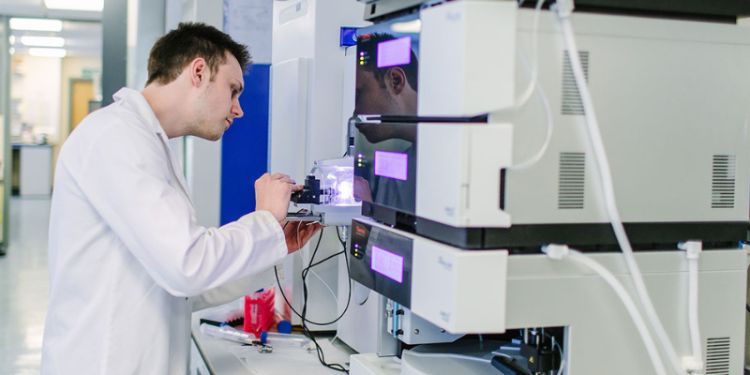Leeds researcher instrumental in helping to secure £49.35m to drive mass spectrometry research

The funding will be used to develop UK wide research infrastructure to overcome global challenges.
A group of UK scientists, including Dr Alison Ashcroft, Emeritus Professor of Biomolecular Mass Spectrometry in School of Molecular and Cellular Biology, has secured £49.35m from UKRI to bolster the UK’s capability in delivering collaborative and world-class research and innovation using mass spectrometry.
“Mass Spectrometry is critical for researchers to deliver world-class science,” said Emeritus Professor Ashcroft.
This strategic investment will provide scientists access to advanced equipment and laboratories across the UK to deliver impactful research in a variety of fields, including health and the environment.
Enabling world-class innovation
Mass spectrometry is a technique that detects and analyses molecules by measuring their mass, charge, and shape.
It is used across all fields of science from geology to astrophysics, but has become particularly important in biology and medicine in recent decades.
The Critical MASS (C-Mass) grant is based on a national hub-and-spoke infrastructure model designed to co-ordinate and advance the UK’s expertise and capability in mass spectrometry.
“The bid for the funding has been supported by many higher education institutes, industrial partners and numerous research institutes so it’s been a huge team effort,” added Emeritus Professor Ashcroft.
Mass Spectrometry at Leeds
The Biomolecular Mass Spectrometry Facility at University of Leeds is a state-of-the-art centre offering analyses of biomolecules.
It is one of the key centres in the European INSTRUCT-ERIC network sharing their expertise and providing access to academic and industrial partners alike.
Mass Spectrometry has supported a wide range of past and existing projects at University of Leeds, such as exploring the outer membrane of bacteria, protein clustering linked with Alzheimer’s and Parkinson’s disease, as well as developing in-cell structural biology approaches.
The service can be used alongside other imaging tools, such as Electron Microscopy and the Bioimaging and Flow Cytometry facility to provide a complete service in the preparation and analysis of cells, from single molecules to macro-molecular complexes.
“We welcome all users from the University of Leeds, other academic institutions and industry to use these facilities,” said Professor Frank Sobott, Chair in Biomolecular Mass Spectrometry, School of Molecular and Cellular Biology
Instrument access is available for trained users to run their own samples and analyse their own data or our expert facility staff can help perform this for you. We also offer competitive rates for external users either on a fee-for-service or collaborative basis.
Read more about the Mass Spectrometry services at Leeds on our website.




